
Alphabetical Menu
Chronological Menu
|
The Cellar 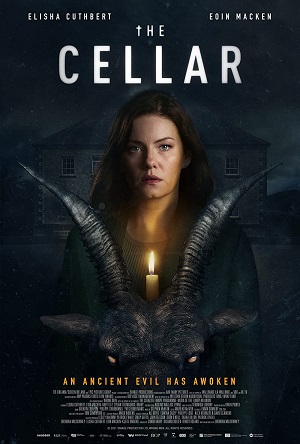 Keira (Elisha Cuthbert) and her husband, Brian (Eoin Macken), move into a new house with their children, teenaged Ellie (Abby Fitz) and younger brother, Steven (Dylan Fitzmaurice-Brady). On the first night of their arrival, they leave Ellie and Steven home alone. The power gets knocked out for some mysterious reason that might have to do with something evil lurking in the house. Ellie goes down to the cellar to check the fuse box and disappears before Keira and Brian return home. The Cellar lacks the scares, suspense and thrills to be an effective horror/thriller. Everything that happens in the screenplay by writer/director Brendan Muldowney can be seen from a mile away, so there's nothing left to surprise the audience. The plot treads the same water that superior films like House, The Conjuring and Insidious have treaded but without a clever screenplay or developing its characters in a way that brings them to life. In order to care about a character, there should be at least a window into their heart, mind and soul at some point. That's something that's sorely lacking in The Cellar. Keira must solve mathematical problems left behind by the evil entity to find her missing daughter, but Muldowney doesn't establish enough of a bond between the mother and daughter to begin with. The film seems like it's in too much of a hurry to jump right into the supernatural elements while it neglects the human elements concurrently. Also, there's not nearly enough comic relief or levity, so the monotonous tone leads to tedium around the hour mark. Horror films are just as interesting as their villains, and in this case the villain is underwritten, bland and forgettable. The performances range from decent to mediocre, but that's mostly likely the fault of the stilted screenplay. What helps ever so slightly to invigorate the film is the production design, lighting and camerawork that adds to the creepy and eerie atmosphere. The music score tells the audience when they're supposed to be scared. The Cellar has the look and sound of a horror film, but everything in between falls flat. At a running time of 1 hour and 24 minutes, The Cellar is atmospheric, but shallow, dull and underwhelming. 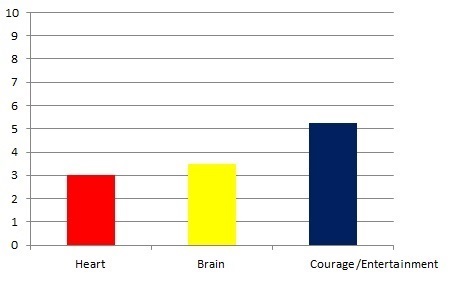 Chariot 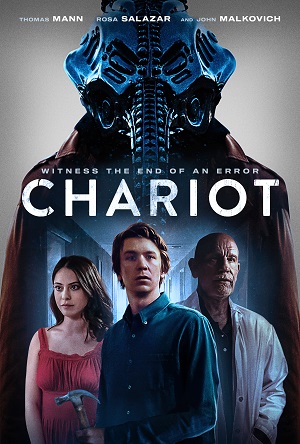 Harrison Hardy (Thomas Mann) suffers from recurring dreams, so he sees a psychiatrist, Dr. Karn (John Malkovich). He moves into a cheap apartment in a building filled with very bizarre residents including the very flirtatious Maria (Rosa Salazar) and David (Vernon Davis), a guy obsessed with breeding turtles. Chariot begins with a prologue set in the 19th Century that pretty much spoils the rest of the film with the chapter heading "Reincarnation Station." Every single chapter heading after that one is just as spoilery which ruins the suspense. It's as though writer/director Adam Sigal didn't trust the audience's intelligence, so he had to fill in the gaps that way instead of incorporating it through exposition in the dialogue or other less explicit ways. Dr. Karn, with his fake-looking fiery-red wig, seems like something's off with him from the get-go which makes him hard to trust. Yet, Harrison trusts him nonetheless. He even trusts the creepy landlady who laughs at him before leaving him in his poorly-furnished room. Then there's Mario who comes onto him pretty strongly in the laundry room and invites him that very same day to have dinner at her apartment. He seems overly trusting and naive while the audience remains more than a few steps ahead of him. By keeping the audience ahead of the protagonist, it makes it hard to connect to Harrison or to cheer him on. He's like that naive horror victim who keeps going back down to the basement while you can't help but shout "Don't go in the basement!" So, withan ending that can be seen from a mile away, the suspense soon dissipates. The obvious villain, Dr. Karn, isn't very interesting as a character and also very poorly developed with not enough of a backstory. The same can be said, unfortunately, about Harrison, although you do get glimpses of his childhood from his recurring dreams, but all you pretty much learn is that he didn't have an attic while growing up. An attic shows up in his recurring dreams, though, and that's the only real mystery to solve. Once the big reveal about what's in the attic unfolds in the third act, it feels rushed and even remotely surprising. Thomas Mann gives a decent performance as does John Malkovich, although the offbeat doctor he plays seems like he belongs in a different, much campier movie. Rosa Salazar gives a grating performance that seems like the kind of role Aubrey Plaza usually plays. There's very little chemistry between her and Thomas Mann, but that's because of the screenplay that barely breathes life into any of the roles. With an more clever and organic screenplay, Chariot could've been as gripping as cult B-movies like Dark City or The Island of Dr. Moreau or as profound as the far superior sci-fi film Nine Days and, of course, Being John Malkovich. Instead, it's vapid, undercooked and sorely lacking in suspense. 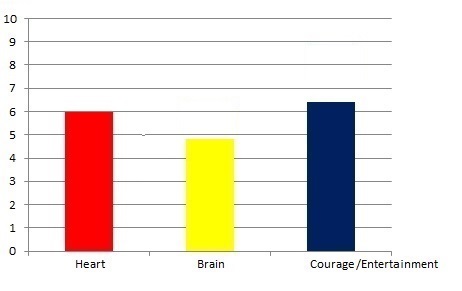 Dual  Sarah (Karen Gillan) lives with her boyfriend, Peter (Beulah Koale). Upon discovering that she has an incurable terminal disease, she decides to go to a special facility to clone herself. Her clone turns out to be the seemingly perfect version of her. Peter prefers the clone over her and even her mother (Maija Paunio) spends more time with the clone than her. When she learns that her disease has gone into total remission and she will no longer die, Sarah must battle her clone in a duel to determine which of them will continue to live, so finds a trainer, Trent (Aaron Paul), to teach her how to fight combat. Dual has an intriguing premise that goes in interesting directions with twists and turns, but the screenplay by writer/director Riley Stearns focuses more on those plots twists than on the characters inner lives or digging deeper into the themes that it barely explores. There are also underexplored issues between Sarah and her overbearing mother who's even more toxic than she seemed because she knowingly chooses the clone over Sarah. Again, Stearns squanders the opportunity to add depth by not having Sarah confront her mother to converse with her about why she practically disowned her real daughter. What about Sarah's other family members? Why doesn't Sarah cut off contact with such a toxic mother who does that to her own flesh-and-blood. Also, why would Sarah want to be with Peter if they're incompatible? He's clearly unhappy with their relationship. When she confronts him about why he prefers the clone over her, he gives her a laundry list of her flaws that hurt and annoy him. Instead of Dual being about her trying to be a better person and girlfriend or about finding someone else who she's more compatible with, it goes the easier route by putting that aside and having Sarah hone her physical skills for the dual, which is a cop-out. The third act feels rushed, incomplete and contrived while leaving too many questions unanswered, although it does deserve credit for being dark, creepy and thought-provoking. Karen Gillan gives a solid performance as Sarah. Any of the film's emotional resonance comes from her performance rather than from the screenplay. Her performance as the clone is also impressive as she speaks in monotone and rapidly which makes it easy for the audience to distinguish between her and the real Sarah. The pace moves along briskly, but too fast during the last few minutes which omits a key scene while asking the audience to quickly fill in the gap on their own. It's at that moment that the film is at its darkest point, but it leaves the audience with a somewhat bad aftertaste with the abrupt ending. At a running time of 95 minutes, Dual manages to be provocative and intriguing, but it's ultimately a squandered opportunity to tell a more profound and haunting human story. It would make for a good double feature with After Yang, a slower paced sci-fi film that also throws a lot of ideas at the audience without enough depth.  Fantastic Beasts: The Secrets of Dumbledore 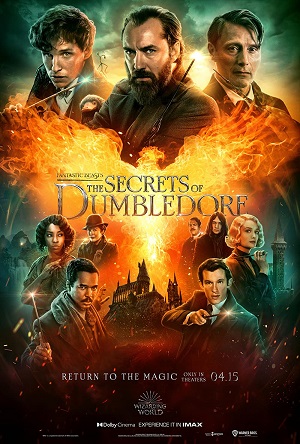 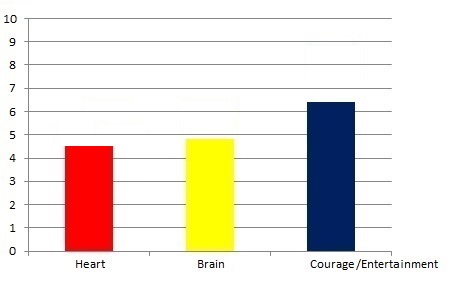 Paris, 13th District 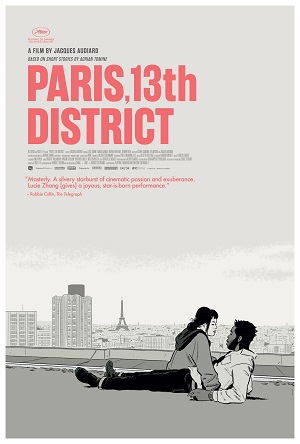 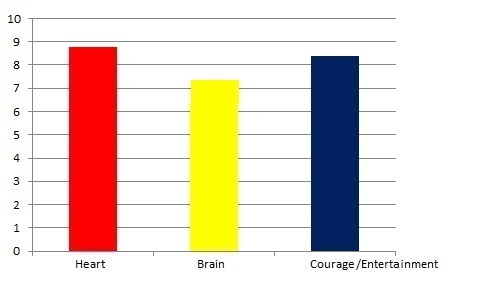 The Tale of King Crab 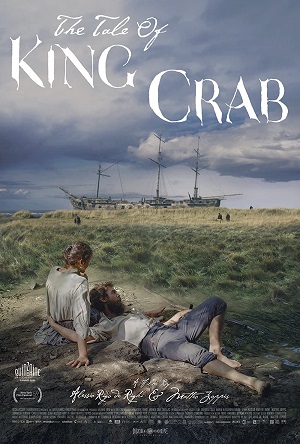 In the late 19th Century, Luciano (Gabriele Silli), a drunkard, falls in love with Emma (Maria Alexandra Lungu), the daughter of a shepherd, in a remote Italian village. Emma's father, Severino (Severino Sperandio), an aristocrat, forbids him from seeing her, though. Making matters worse, Luciano angers a prince (Enzo Cucchi) who prevents him from crossing through a road that's considered a right of passage. Exiled to Argentina, he pretends to be a priest and uses a king crab as a guide to find buried treasure. The landscape in The Tale of King Crab often turns into a character in itself. With picturesque cinematography, the visuals are poetic. They're both part of the film's substance and style. Who needs expensive CGI when nature itself can look so stunning and majestic? Poetry is, after all, a form of protest for or against something. What is The Tale of King Crab for or against? That's left up to the audience to decide, but it could be a number of things, i.e. a protest against greed and selfishness. At no point does the film become preachy, though, or even clunky. The performances are by newcomers. Even the lead, Gabriele Silli, is a newcomer, but you wouldn't think that when you see him acting because he's so natural. It's refreshing to see previously unknown actors in these roles because that sense of anonymity makes the film all the more engrossing. At a running time of only 1 hour and 46 minutes, The Tale of King Crab is a spellbinding, bold and poetic journey well worth taking. 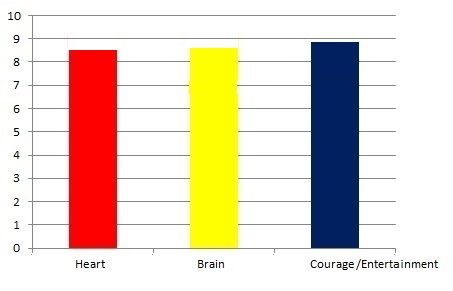 We're All Going to the World's Fair 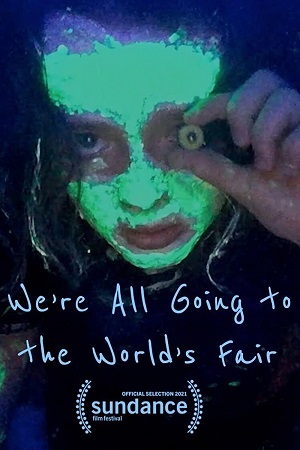 Casey (Anna Cobb), a teenager, spends most of her time alone in her room playing games on her computer. One of those games is a role-playing horror game called World's Fair Challenge which includes an initiation. She documents the changes that she experiences after the initiation and watches the clips that other players recorded. Meanwhile, an older man hidden behind an avatar, known only as JLB (Michael J. Rogers), communicates with her and claims to be an expert at the game. To call We're All Going to the World's Fair a suspense thriller or a horror film wouldn't be fair because it's much more along the lines of a psychological horror, and there's no edge-of-your-seat suspense. Writer/director Jane Schoenbrun builds the suspense very gradually with most of it coming from the mystery behind the game and JLB's true intentions. She plays around with what audiences are conditioned to, especially after seeing Catfish, Unfriended and other "found footage" movies, but then she subverts those expectations while blurring the line between reality and fantasy. Should the audience trust JLB? Should Casey trust him? He's old enough to be her father, so it's hard not to see him as a predator, but, again, that's something that's in the mind and projection of the audience based on their own experiences in life and watching other films. There's very little exposition about the game, so you learn about it in bits and pieces. Casey's family life also doesn't have much exposition except that she lives with her father who's not even shown on screen. She briefly interacts with him when he tells her that she's making too much noise. What happens to some of the players in the game doesn't look real, but Casey's emotions are very real and so are her reactions. She's at a vulnerable age where she's still growing up and making sense of the world around her. Perhaps the game and the film itself is like a metaphor for life while also serving as a cautionary tale about loneliness, addiction to technology, and technology's affect on mental health. Schoenbrun leaves those messages up for the audience to determine, so the film doesn't get preachy, but it does become quite moving with a final shot that opens the door for interpretation. The audience, after all, becomes like a character within the film, watching Casey and JLB like a voyeur. Anna Cobb gives a breakthrough performance as Casey. She's just as engrossing as Thora Birch is in Ghost World as Enid, who's cut from the same cloth as Casey. Both are lonely, alienated human beings lost in a shallow, dehumanizing world while struggling to figure out how to process their emotions and how to express themselves. JLB also seems like someone going through his own emotional battles. Michael J. Rogers gives a convincingly moving performance, especially during the last scene. Fortunately, writer/director Jane Schoenbrun doesn't resort to shaky cam as a means to generate tension or to invigorate the film; the tension and conflicts come from the characters, the screenplay and the audience's imagination/projections, not from anywhere else. That said, some of the cinematography adds to the film's eerie and foreboding atmosphere. At a running time of 1 hour and 26 minutes, We're All Going to the World's Fair is a timely, unpredictable and poignant hybrid of psychological horror and coming-of-age film. 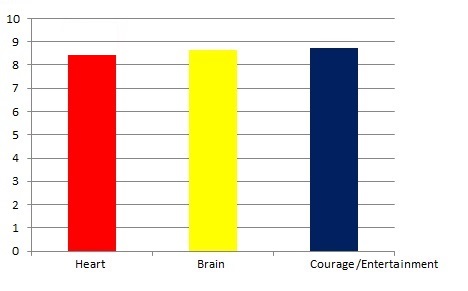 |